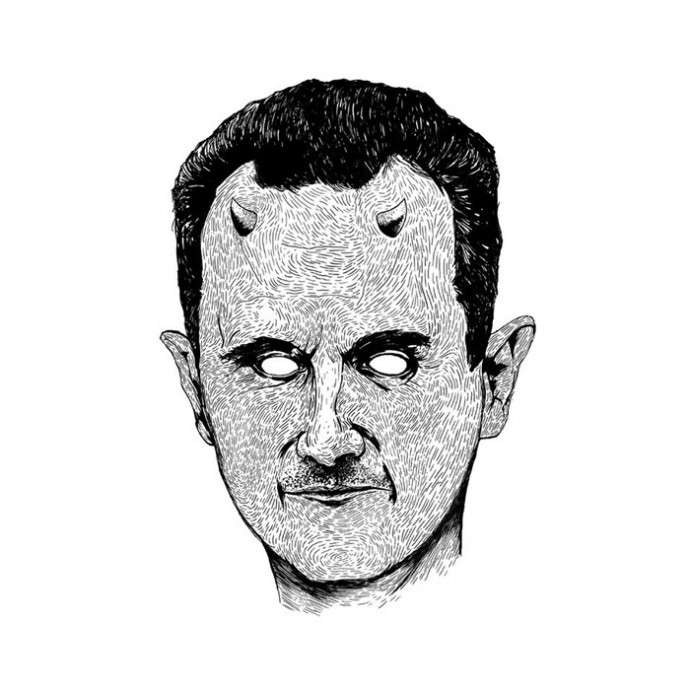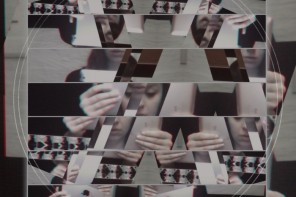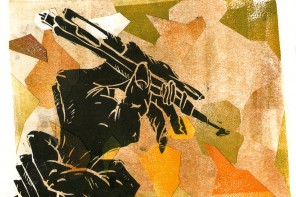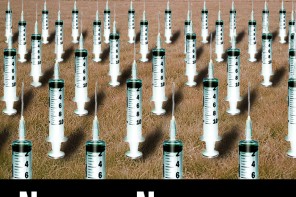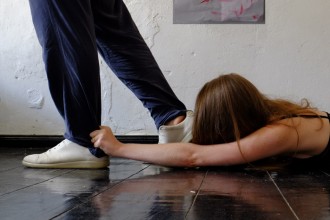Since the Syrian uprising on March 15th, 2011, the media has been full of reports of the atrocities occurring there. The recent uproar over the use of chemical weapons and the possibility of US intervention has fuelled international interest, but has done little to help the actual people of Syria. The death toll reportedly exceeds 110,000, and the number of refugees is said to be over two million. The situation for the people still living inside Syria is becoming increasingly dangerous. Sensa Nostra spoke to Firas al Shater, a 24 year old activist and filmmaker, who has recently fled to Berlin after being imprisoned and tortured multiple times for his films and his protests.
I didn’t hear about the first demonstrations. I went to my first one in April 2011 in Homs, where I’m from. I’m not a political man. Before 2011, I didn’t care about the regime and things like that; I was thinking about my studies, how to get money, how to meet girls. I was studying acting in Damascus until they kicked me out—it wasn’t just me, they kicked everyone out who was against the regime. They said that without Bashar and the regime you can’t even go to university. We were just making posters and attending the demonstrations, organising things through Facebook…
The first time I went to prison was in September 2011. I was at a train station with my friend and we were singing a song against the regime. I stayed for two months. For forty days they left me alone; I didn’t see or speak to anyone. The first time they came to talk to me, they tied my hands behind my back with elastic and pulled me up by them. I still have scars around my wrists from where the elastic cut into my skin. After twenty seconds I said, “I can tell you what you want.” You can’t stand it longer than thirty seconds; you are in so much pain you feel like you will die. They wanted me to tell them how many people I had killed. I said I didn’t kill anyone. I don’t know how to use a gun—my gun is my camera, my gun is my voice at the demos. They said, “No, we know you’re lying,” and then they kept torturing me.
In March 2012, I was working with journalists from France, Switzerland, and America. When they needed help finding demonstrations or people to interview, they would get activists to help out. I did that until I was arrested helping a Swiss journalist. He stayed in jail only a few hours, but I stayed a few months. We were twelve people stuffed into a small room of one-and-a-half meters by eighty centimetres. We could not sit or sleep, we could only stand up. I was wearing shorts when I was caught so I was very cold (the cell was underground and it didn’t have a window). My family paid money to get me out, and I continued my activism. After eight days, they caught me again. In Syria there are twenty security services, and when you escape one, the other tries to catch you. Eighteen days later, they let me out because Bashar al Assad had made an agreement to let all the people out of jail. He didn’t let them all out—some, but not all. I got out because I am well-known in Syria. People were asking about me on Facebook, and things like that, and then the regime let me and some others out so they could say, “Oh, we let Firas out.”
The biggest torture for me was when I was in the small room and I could hear the other people being tortured. This went on twenty-four hours a day. You couldn’t sleep, you could only listen to them screaming and wonder when it would be your turn. Jail culture was hard for me. Inside, we are against-togethers, both enemies and comrades. You couldn’t touch your tormentors, so we made problems between ourselves. You couldn’t talk to anyone else, so we took it out on each other.
The last time they caught me was at the end of May, 2012. I was put into a room with two hundred and seven people. It was five by five meters. Once, they turned off the air conditioning for a week, and people were passing out and going crazy. One man was asking me to open the door because he thought his wife was there with water. There was a doctor pissing on the floor, not knowing what he was doing (we were only allowed to go to the toilet twice a day). They gave you three minutes, and you couldn’t take longer or they would kill you. I went a long time without shitting because I wasn’t eating. They would give us three potatoes and two tomatoes to eat in a small room of twelve. How could we eat? If you got sick you had to buy medicine from the people inside the jail who had it. Once, I went a few days without eating to trade potatoes for medicine.
You don’t need to be an activist to be put in jail. They can put you in jail for walking in the street if they think maybe you are a terrorist or maybe you are against the regime. There is no one group called the Free Syrian Army. Maybe every second or third person will say they’re from the Free Syrian Army, but they could be anyone. At the start, they were the rebel group fighting the government, but now anyone who is fighting can say they are from this group. We have Islamic people in Syria now who are fighting as well. Islamic people are incarcerating some, and the Free Syrian Army catch others, and they do exchanges between each other. The Islamic people caught me and asked me why I was filming without their permission, and why I didn’t show the Westerners Islamic Syria. I am not against Islam, but we didn’t rise up and go to jail so that Islamic people could storm our revolution. We don’t want the same dictators again. We are asking for freedom.
The situation is different depending on the area you’re in. In the revolutionary areas, there is no electricity or food. In some areas people, even children, are dying of starvation. The regime stops people from going through if they see that they’re bringing food. There are some free areas where they have food and power because people can come through Turkey, but there is nowhere people can enter Damascus because it’s inside Syria.
I want the US to come and help us, but I don’t think they will. If they were going to they would have already, like they did in Libya. What’s happening in Syria now is much worse, but they’re not interested. Libya has oil and money. We don’t have that. If the European or American people had helped us from the beginning, it wouldn’t be so bad. I’ve seen a few posters and things that say the truth about what’s happening in Syria, but in the media they only say what they think will sell: Islamic people are killing Christian people in Syria. You never hear about all the other rebel groups who have come to kill people, like Hezbollah, Shi’ites from Iraq, Iran—it’s not just Al Qaeda.
I was working on the film Syria Inside with a German film production company and so I came to Berlin. It’s hard here with the bureaucracy, but for the moment I am just learning German and making a life for myself. My family are still in Syria. There is no safe area, so I am afraid for them. The problem is that if they leave then they won’t have work anymore. We are not a very rich family, and before the revolution one dollar was 40 Syrian pounds; now it’s 120. That’s a big difference, so it’s hard to go to live in Egypt or somewhere else. My sister is twenty-six, and she went to buy a mobile phone as a gift for my mother. Her boyfriend was waiting at home and a bomb went off nearby. It killed him.
We have no options here, just fighting. I can speak with one thousand people and tell them to stop it, but there are one million people. You have to fight to protect yourself or you will die. Guys who were once selling fruit or hardware are now officers in charge of two hundred people. You can’t tell them to go back to selling fruit. They feel they’re president now, that they can do whatever they want. There are sixteen year olds with guns; they march the streets and feel strong. You can’t just ask these people to give up their guns. It will not end for five or six years. Maybe I’m being too positive—ten years. We don’t even know who’s fighting who anymore.

